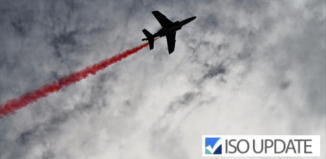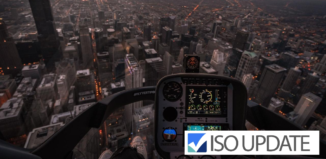What is the Difference Between AS9100 and AS9120 Certification?
Aerospace standards are not only meant to work towards customer satisfaction but also help with providing improved quality and timely delivery. They are also used for problem identification and risk mitigation. Moreover, these standards help to reduce the overall cost of projects by cutting risks and potential for error by developing sound business processes that ensure quality outputs are consistently achieved. Both AS9100 and AS9120 work towards streamlining and reducing the number of required audits along the aerospace supply chain and include aspects of the ISO 9001 standard plus specific areas of importance related to quality for the Aerospace industry.
Important Note: Differentiation is made between the new information added in the AS Standards by Bold and Italics.
The true difference between the two AS standards and the reason your organization should be certified to one over the other lies in the type of aerospace organization that you operate – whether you create products and services or whether you distribute products within the aerospace industry.
AS9100 and AS9120 are internationally recognized standards for quality management for the aerospace industry that are operated by IAQG or the International Aerospace Quality Group (IAQG).
When discussing the benefits of these standards, it must be kept in mind that these standards facilitate and monitor continuous improvement but also open market opportunities. The standards help demonstrate and validate transparency and traceability through a supply chain network which helps reduce costs, increase efficiency and ultimately save time, money and resources. They also help ensure that a system is monitored and supported by the regulatory authority which helps engage, motivate and involve the staff. Moreover, certification helps with trade as it is often considered a requirement in the aerospace industry.
Important Note: While AS9100 mentions several guidance standards that do not require certification, these only provide guidance and specifications.
What is AS9100?
QMS for quality assurance in design, development, production, installation, and servicing
AS9100 is an international standard containing requirements for establishing and maintaining a quality management system for the aerospace industry. Its official name is AS9100 Quality Management Systems – Requirements for Aviation, Space and Defense Organizations and it is intended to be used by organizations that design, develop, and produce aviation, space, and defense products and can be applied throughout the supply chain.
Because the aerospace industry has high standards of customer satisfaction and strict laws imposed by regulatory authorities AS9100 focuses on how the products are made to ensure the organization produces and continuously improves products that meet these high industry standards. This standard establishes the elements that a quality management system must have for companies to consistently provide safe, quality products that are delivered on time.
The design and implementation of this standard will be influenced by the size and organizational structure of the company, its needs, its objectives, processes and the products it provides.
What is AS9120?
QMS for quality assurance in stockholding and distribution of aerospace/defense parts
AS9120 is a standard that specifies the requirements for a quality management system (QMS) for stockist distributors in the aerospace industry. The standard addresses chain of custody, traceability, control, and availability of records. AS9120 was developed for stockist or pass-through distributors of aerospace commodity items. This standard is part of the AS9100 series, and it includes all of the ISO 9001 requirements, plus specific requirements related to aerospace distributors.
Distributors of aerospace commodity items directly impact the performance of these items if they are mishandled or traceability is lost between the original equipment manufacturer (OEM) and final customer. AS9120 has been developed to help distributors minimize the occurrence of anything that could negatively affect the performance of their commodities.
This certification is intended for organizations that procure parts, materials, and assemblies, and sell these products to a customer in the Aerospace industry. This includes organizations that procure products and split them into smaller quantities. This standard is not intended for organizations that rework or repair products.
Summary & Notes
It is important to note that the AS Standards mentioned in this article are not product standards since they do not define product quality. They only ask you to control processes in order to meet customer requirements for your outputs. Since these are not personal standards, an individual cannot become certified to them, they can only become a third-party auditor of the standards.
An organization can become certified to the AS standard through a 3-year process with annual audits conducted by internal and external auditors and recommendation for certification by an accredited certification body. This is done to ensure an organization’s processes and quality management system are inspected by an impartial third-party at regular intervals to ensure compliance with the AS Standard.
With various representatives for departments of aviation, space, and defense companies in the Americas, Asia-Pacific and Europe, AS9100, AS9110 and AS9210 standardize not only quality management system requirements but can be used at all levels of the supply chain by different organizations around the world, in order to ensure improved quality, reduced costs, consistent outputs, and improved delivery performance.
This is accomplished through the reduction or elimination of organization-unique requirements, effective implementation of the quality management system, and wider application of good practices.
The benefits of AS9100 AND AS9120 include not only market acceptance but the opening of international opportunities as both the standards are endorsed by all major aerospace bodies and regulators including Federal Aviation Administration (FAA), U.S. Department of Defense (DoD) and National Aeronautics and Space Administration (NASA).
ISO Terms Explained

To the novice quality manager, ISO jargon can be extremely overwhelming. What is an NCR? What do you mean by OFI? Are we certified or accredited? But before you go and pull out your hair, let’s take a moment to go over some of the most frequently used terms and their definitions with regards to ISO and Management System Certification.




